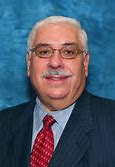 |
| BERRIOS: Name in news despite himself |
No strip clubs or dive taverns across the
street from a church or convent (remember that bar in west suburban Stone Park
that ultimately lost its liquor license because the nuns nearby didn’t
appreciate the drunken neighbors?).
THEY ALWAYS STRUCK me as something overly
simplistic, and not always easy to enforce. Particularly if they come down to
issues of “How close is too close?”
So I was intrigued by a pair of stories I
stumbled across Friday.
One involved Gov. Bruce Rauner signing off on a
long-standing change to state law that requires the General Assembly to approve
amendments to the state’s Liquor Control Law for every instance for every
instance where alcohol is served within 100 feet of a church or school.
Now, municipal officials will have the
authority to issue exemptions. No more having to get the legislative types who,
theoretically, ought to be preoccupied with bigger issues instead of worrying
about where taverns are located in the neighborhoods.
THERE ALSO WAS a Chicago Sun-Times report about
the company that oversees parking of cars for various public events at
privately-owned lots.
In the instance that has the newspaper all
worked up, people attending ballgames at Wrigley Field are parking their cars
in, amongst other places, a lot that is part of the Inter-American School
property two blocks away on Waveland Avenue.
The “controversial” part is that the Blk &
Wht Valet LLC employed an individual to work at that lot who has a criminal
record for sex offenses – and part of his penalty is that he is required to
list himself as a sex offender, which limits the places where he can be.
 |
| RAUNER: Giving local officials more control |
And as the Sun-Times chose to phrase it, their
reporters found the employee in question at work, “with kids swinging on the
monkey bars behind him.”
FOR THE RECORD, that employee has since been
fired from his job, although it seems the company may wind up losing its
contract for claims they didn’t do an adequate background check on their
employee.
Although the Sun-Times reports the company
saying the worker in question didn’t indicate his criminal record on his job
application. Which would put this incident in the category of a person with a
record hoping it wouldn’t catch up with him.
In short, an incident where such restrictions
aren’t the easiest thing to enforce. I suspect, however, this particular worker
is going to think he’s the victim – yet another incident of “the system”
working to keep him unemployed.
One thing that caught my attention is the
political connections of the company that, basically, is using other peoples’
property to park cars near Wrigley, along with Guaranteed Rate Field and the
United Center.
ONE OWNER IS the son-in-law of soon-to-be
former Cook County Assessor Joseph Berrios (he’s married to former state Rep.
Toni Berrios) and also is a grandson of a former Chicago Public Schools
official with ties to the 11th Ward Democratic Organization (a.k.a.,
the Daley family).
 |
| How tame is parking nearby? |
By comparison, Rauner indicated his support of
the state law change is meant to create greater local control, since he told
the Chicago Tribune that many state legislators used the law to maintain a
sense of local influence in their home neighborhoods.
After all, getting the legislator to support
your measure would require a campaign contribution to the appropriate
authority, with other legislators across the state sticking up for their
colleagues even though they often knew nothing of the local situation.
So no matter how much people spew rhetoric
about these laws somehow benefitting children and the public safety, in the
end, they all come down to political concerns.
-30-
No comments:
Post a Comment